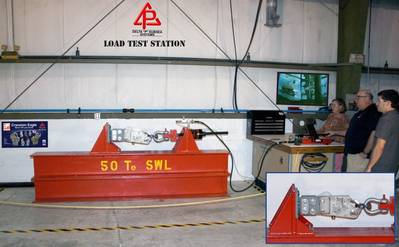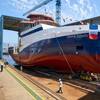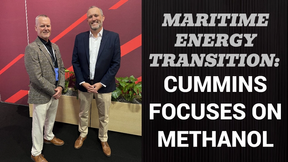Delta "T" Offers Marine Hook Load Testing
A review of resources on the world wide web will quickly produce an abundance of material and statistics on the hazards of marine hook use on life boats, fast response craft, tenders and other vessels.
Accidents, injuries and fatalities are far too common when it comes to the operation of marine davit launching systems. Surprisingly, accidents which occur during drills often dominate the statistics, with the second-highest accident counts found during surveys and equipment maintenance events.
The ultimate safety of the crews and passengers on board a vessel come down to properly handling three factors concerning these launching systems: the equipment design, adequate training on proper use of equipment, and up-to-date maintenance on the equipment. Delta "T" Systems can assist with critical load testing and recertification for marine hooks, so products will perform as designed to enhance safety aboard.
As the full-service agent for Cranston Eagle marine off-load hooks in the United States, Delta "T" Systems is a local source for parts, service, classification society witnessed load testing and recertification of the Finland-based Cranston Eagle hook line. As per IMO requirements, marine hooks need to be load tested and recertified by a registered and qualified agent every five years. Delta "T" Systems has set up a full load testing facility through their engineering division, Delta "P" Subsea Systems. Load testing and recertification is overseen by the highly experienced VP of Delta "P" Subsea Systems, David Dupont, who has more than 28 years of engineering design and testing experience in critical load path marine structures.
When Delta "T" Systems receives a hook for rebuilding, testing and recertification, it is often grossly past the five-year recertification date. It is commonly improperly lubricated and gummed up with dried grease, and the operational labels are faded or completely missing. Neglecting this critical piece of life-saving hardware comes at a very high price.
Operators should check their vessel's hooks to make sure their testing and certification is up to date, and then adhere to the hook manufacturer's schedule of periodic inspection and maintenance. Doing so will reduce the chance of an incident and the associated liabilities.














